Disclaimer: This blog post contains affiliate links. If you make a purchase through these links, I may earn a small commission at no additional cost to you. Learn More. Thank you for supporting our garden community.
Best Organic Fertilizer for Vegetables That WORK
If you’re growing vegetables, you know how important it is to feed your soil, not just your plants. But not all fertilizers are created equal. For gardeners who want real, nutrient-dense food from a thriving garden, organic fertilizer is the way to go. In this post, we’ll break down the best organic fertilizer for vegetables.
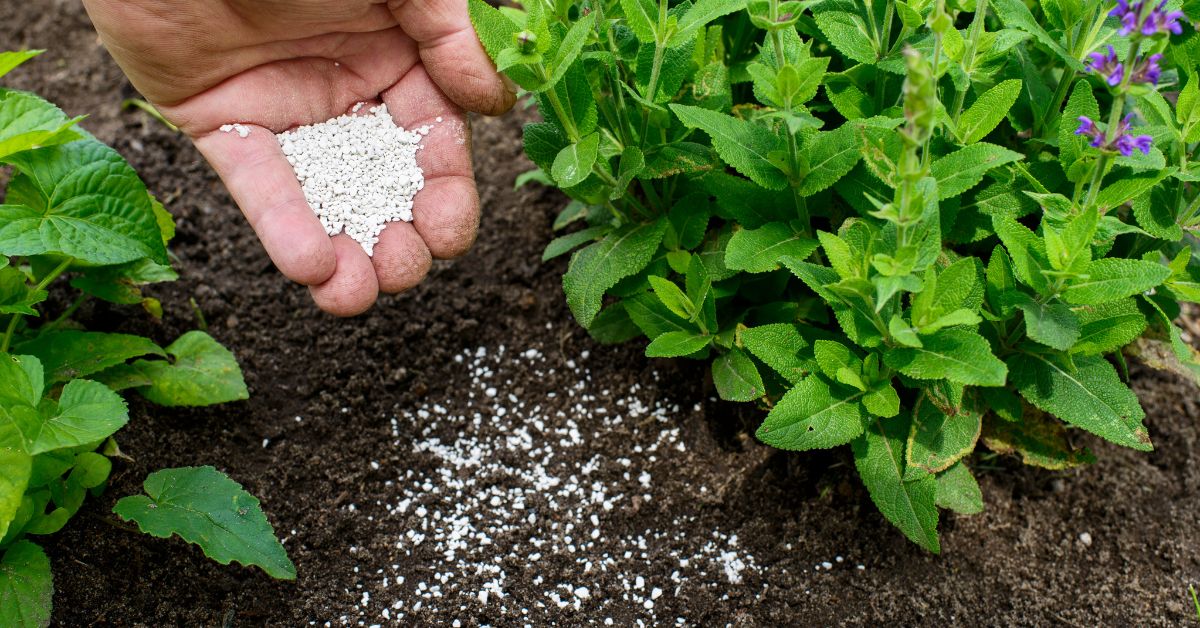
Best Organic Fertilizer for Vegetables
Organic fertilizers are no doubt the key to having a healthy vegetable garden.
All those synthetic products just don’t get the job done in the same way organic fertilizers do. They’re just so much better in every single way.
There are applications for synthetic fertilizers, I won’t lie. But there’s no way they’re better than organic.
That being said, let’s get right into the best organic fertilizer for vegetables.
Products:
Save 10% on your first Burpee seed order using code BURPEE10
Difference Between Organic and Synthetic Fertilizers
The thing that makes a fertilizer organic is the materials that make it.
Organic fertilizers, unlike synthetic fertilizers, are derived from 100% natural ingredients. This can include animal waste, plant waste, or minerals.
Bones, blood, manure, compost, seaweed, sulfates, and phosphates are used to make organic fertilizers, along with other materials.
They typically recycle waste from other sources (fish carcasses, for example, are used to make bone meal).
All of the ingredients are natural in the sense that they are derived from organic sources.
Synthetic fertilizers, on the other hand, are fertilizers that are made from synthetic materials. These are materials made in a lab and they are often very potent.
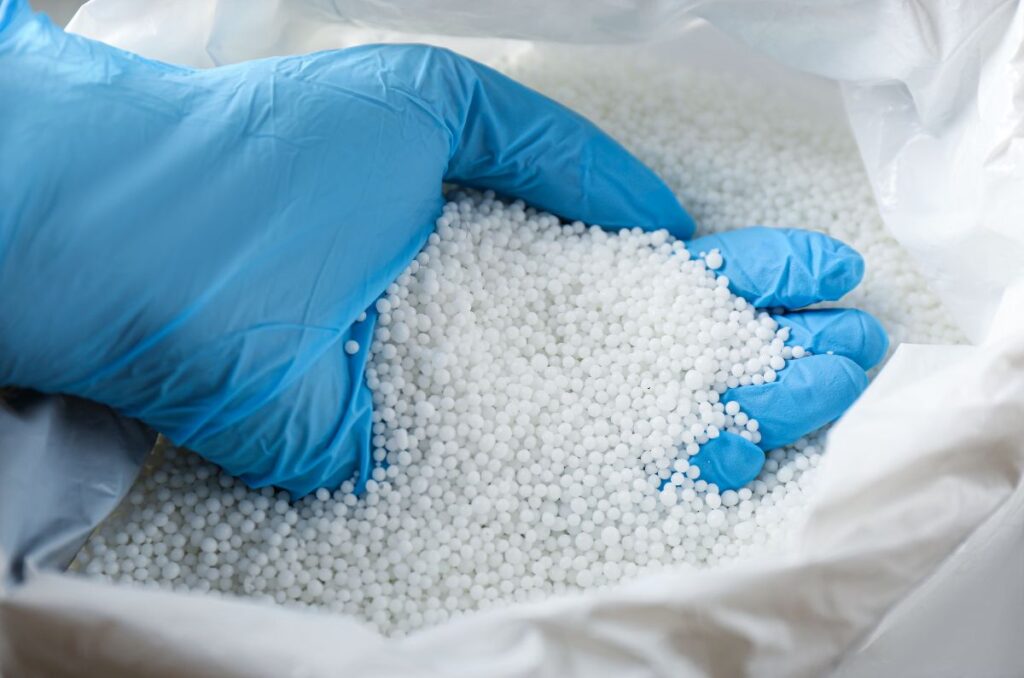
For example, instead of using bone meal for nitrogen, they can just isolate the almost pure nitrogen in the form of ammonium (NH4+).
They can easily use the nitrogen from the air, combine it with hydrogen gas, and form ammonia. Ammonia is then used to form various nitrogen-containing compounds.
This nitrogen can then be applied to plants and it will be absorbed much quicker.
Additionally, most synthetic fertilizers are water soluble, especially considering that they are in ionic form. As you might know, ionic compounds are incredibly soluble in water, just like salt.
Why Organic Fertilizer is Better than Synthetic
I’m making a bold claim here by already assuming that organic fertilizers are better.
But don’t be surprised that I actually think that there are times when synthetic fertilizers are better than organic.
I think when you need very fast results, precise nutrients, or a cheap option, then synthetic fertilizers are the way to go.
However, I’m not convinced that these things happen often in the home vegetable garden. Except for needing a cheap option, the other two things just aren’t an issue.
So yes, if it’s the only thing that you can afford, then use synthetic fertilizers, because they are much cheaper. But here’s why organic fertilizers are better in every other way:
- Improve soil health: Organic fertilizers are not just nutrients, they have actual organic matter, derived from natural sources. This goes into your soil and helps with the structure, water retention, and much more.
- Feed beneficial microorganisms: The organic matter in the fertilizer helps to feed the beneficial soil microorganisms in your soil. These microbes don’t feed on specific nutrients like nitrogen, they need actual organic matter.
- Contain beneficial microorganisms: Some organic fertilizers actually have beneficial microbes in them, which then get added to your soil and help your plants.
- Release nutrients slowly: They also release nutrients slowly, not suddenly. This significantly reduces the chances that your plants will get fertilizer burn.
Like I said, there are definitely times when synthetic fertilizers might be better. But for these reasons, you should always use organic fertilizers for your vegetable garden.
What Makes a Good Organic Fertilizer?
A good organic fertilizer, first of all, has to be organic. It has to come from natural sources, like plant or animal waste.
Some brands will try to make their synthetic fertilizers look organic by playing with the colours or packaging. But always read the labels and the ingredients.
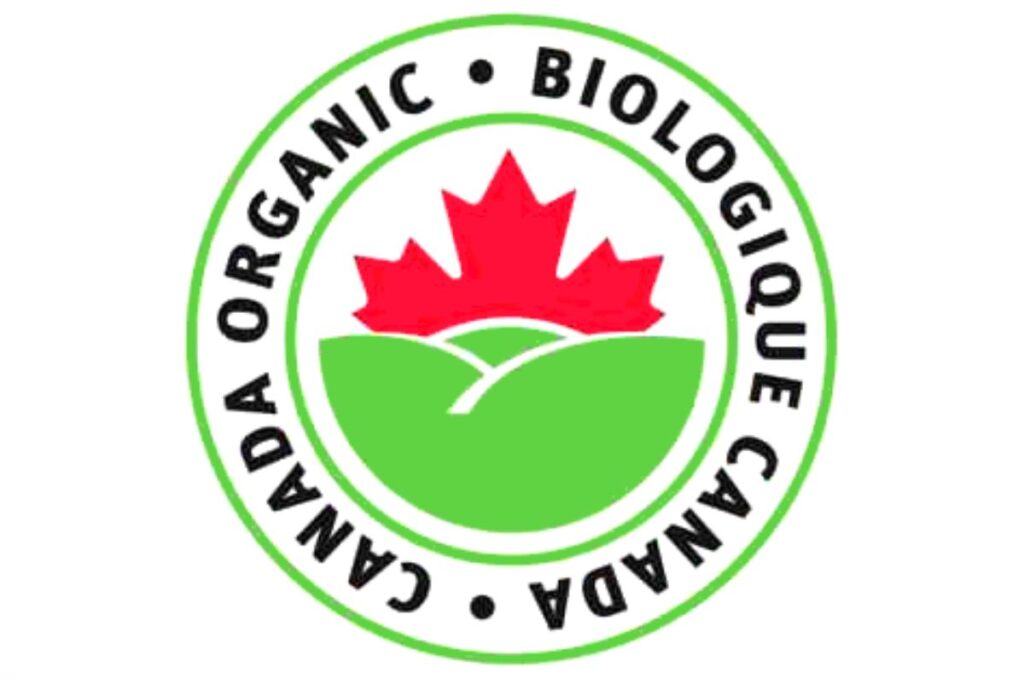
Secondly, organic certifications are always a good touch. They’re not necessary, but it definitely helps to make a good choice on which fertilizer to use.
Look for the OMRI, “Certified Organic,” “Canada Organic,” or whatever the certification is in your country.
Additionally, it should contain the nutrients that your plants need.
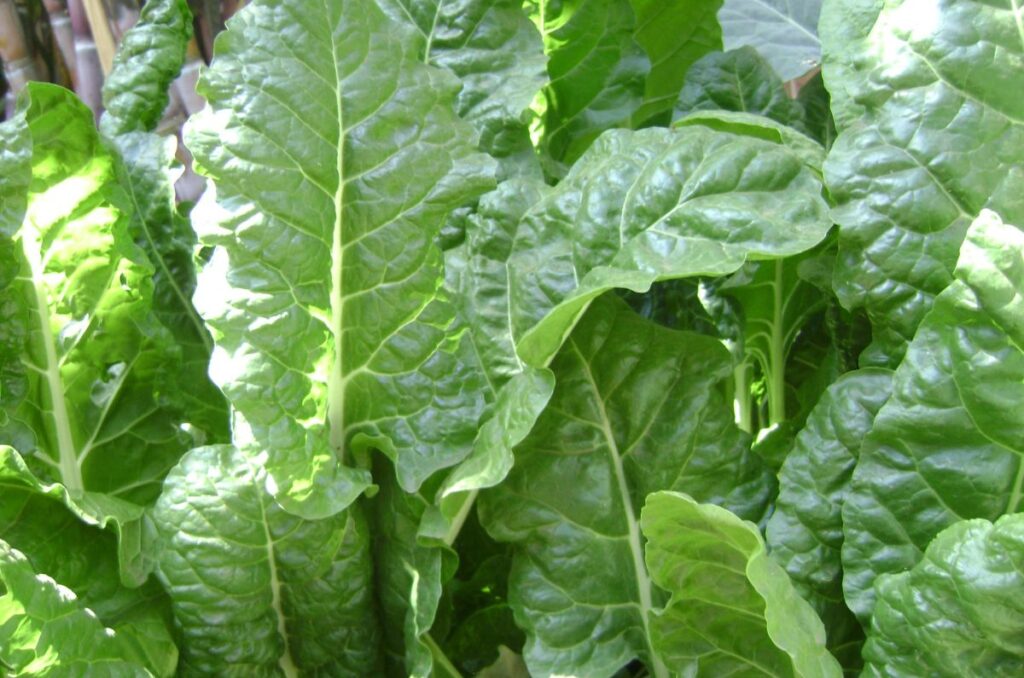
For example, if I want to fertilize a bunch of spinach, then I need a fertilizer high in nitrogen. I wouldn’t choose rock phosphate, but I might choose blood meal.
And if you’re still confused, then just try a good popular fertilizer and see how your plants react.
If they explode in growth and look really good after, then it’s a good fertilizer. If they don’t look too happy after applying it, then maybe you shouldn’t use it again.
I tend to lean more towards the animal-based fertilizers. I don’t know why; I guess there’s just something special about spreading crushed bones and blood all over your garden.
Understanding NPK Ratios
NPK stand for Nitrogen, Phosphorus, and Potassium.
Yes, K means potassium; it’s the symbol for potassium on the periodic table, from the Latin word “kalium.”
These are the 3 macronutrients that plants need in the greatest quantity. They need other nutrients as well, like calcium and magnesium, but they need these 3 the most.
Generally speaking, nitrogen promotes leafy growth, phosphorus promotes root development, and potassium promotes flower and fruit production.
You’ll find an NPK ratio on every fertilizer you buy from the store, organic and synthetic. And it tells you the percent by weight of each macronutrient.
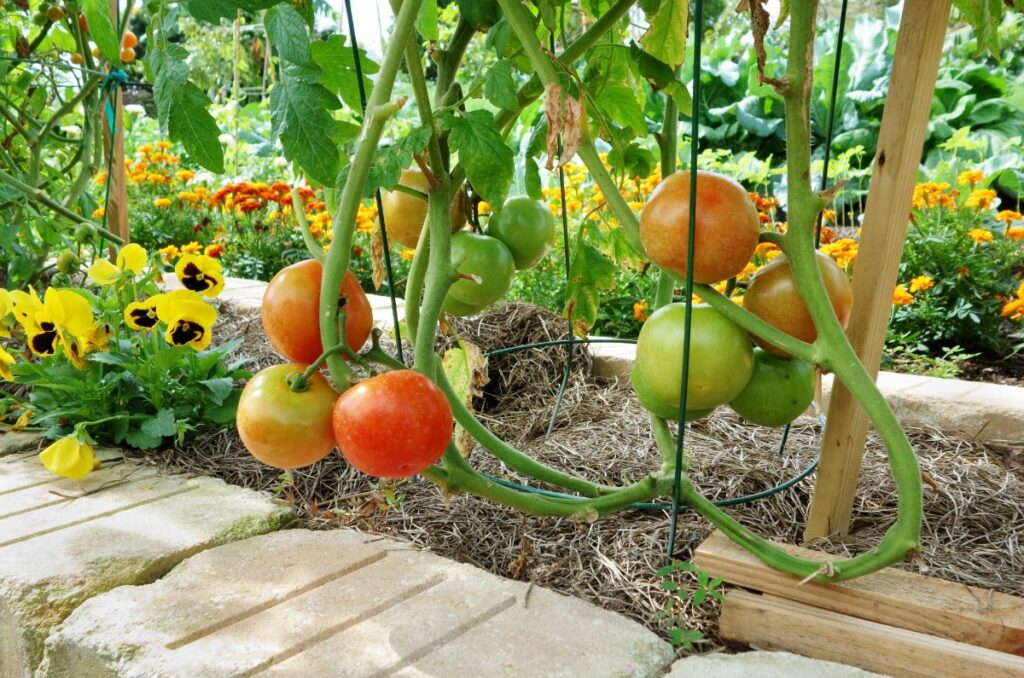
For example, if the NPK ratio is 4-3-7, then it has 4% nitrogen, 3% phosphorus, and 7% potassium. Something like that I would use for tomatoes or peppers.
Learn more: Best Fertilizer for Tomatoes to Grow Juicy Fruits
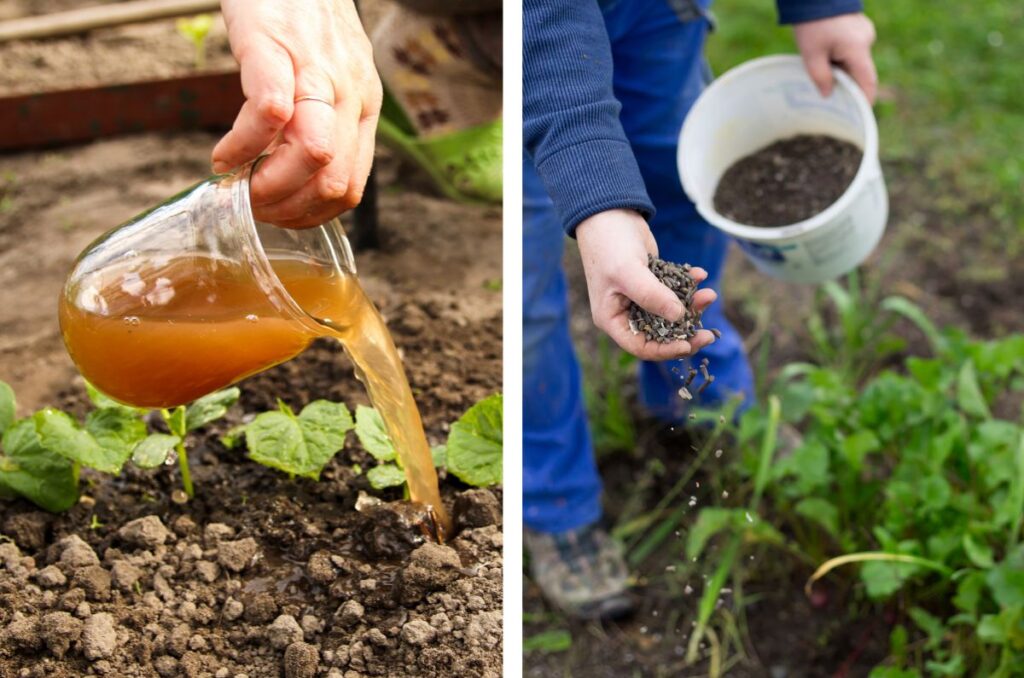
Liquid vs. Granular Fertilizers
Many gardeners get stuck up in the liquid or granular fertilizer question. So let me clear it up.
Liquid fertilizers are fertilizers that you buy as a concentrated liquid. These need to be diluted in water before applying them to your plants.
I’ll also include water-soluble fertilizers with liquid because they need to be dissolved in water before you use them.
Granular fertilizers are more like powder. They’re dried and ground up like breadcrumbs or flour, or something like that.
Here’s when you would use liquid fertilizers:
- If you want quicker results. Liquid fertilizers still need a little bit of time to fully break down and become bioavailable for your plants, but they’re much faster than granular.
- If you have young or small plants. Liquid fertilizers are usually weaker than granular fertilizers, so they’re great for things like seedlings.
- If you’re ok with fertilizing more often. Generally speaking, liquid fertilizers get used up quicker than granular. This means you have to constantly apply some fertilizer, possibly every time you water.
When applying liquid fertilizers, dilute it with water in a watering can and make sure to thoroughly soak your soil.
A tiny bit won’t do anything. You need to soak it.
Here’s when to use granular fertilizers:
- If you want a long-term approach. Granular fertilizers stay in your soil and feed your plants for a longer period of time than liquid fertilizers.
- If you’re not using it all at once. Liquid fertilizers tend to “go bad” quicker than granular fertilizers. If you know that you’re going to be leaving it on the shelf for a while, then choose granular.
- If you can’t afford liquid fertilizers. Granular fertilizers are considerably cheaper than liquid fertilizers, mainly because it’s less of a process to make them.
Granular fertilizers can be sprinkled right on top of the soil, or you can work it into the top layer.
If you’re sprinkling it on top, then make sure to water it in after. If you’re working it into the top layer of soil, then you can wait until the next time you water to water it in.
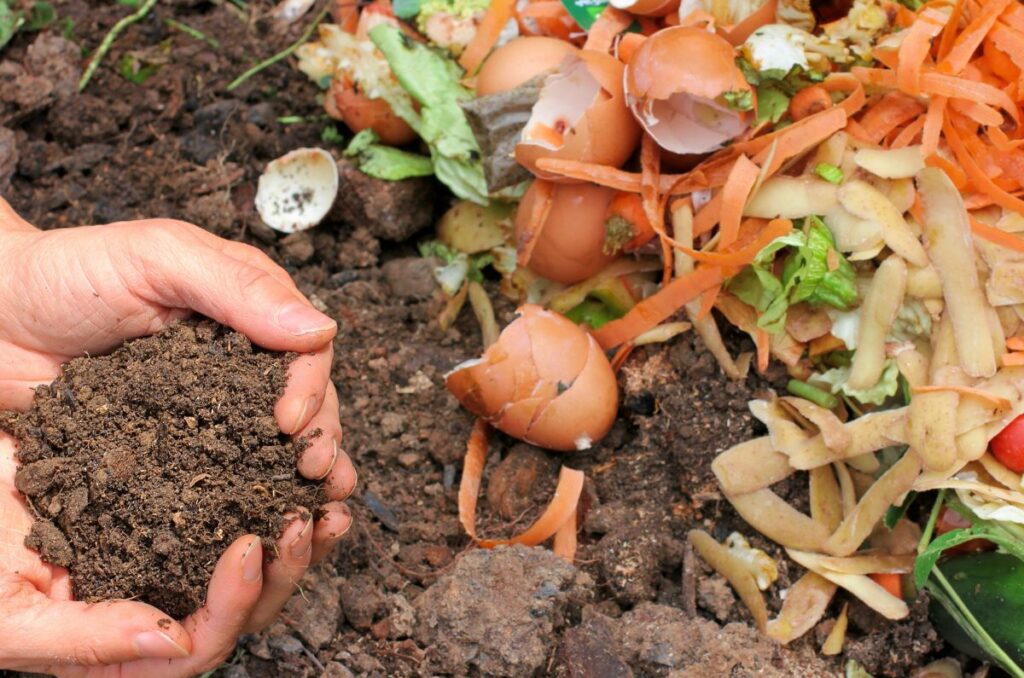
Is Compost an Organic Fertilizer?
Compost is made mostly from decomposed plant material. There’s almost no animal materials, except for eggshells or something like that.
That being said, many people wouldn’t consider compost an organic fertilizer. Maybe because it’s too similar to actual soil.
But because it’s not actually soil, it’s completely organic matter, it is technically an organic fertilizer.
Compost also has an NPK ratio, a very low one but still. It’s usually a 1-1-1 or 2-2-2 ratio for compost, so pretty weak.
But that’s because compost isn’t used just for adding nutrients. Its main use is to add organic matter, especially to poor soils like clay-heavy or sandy soils.
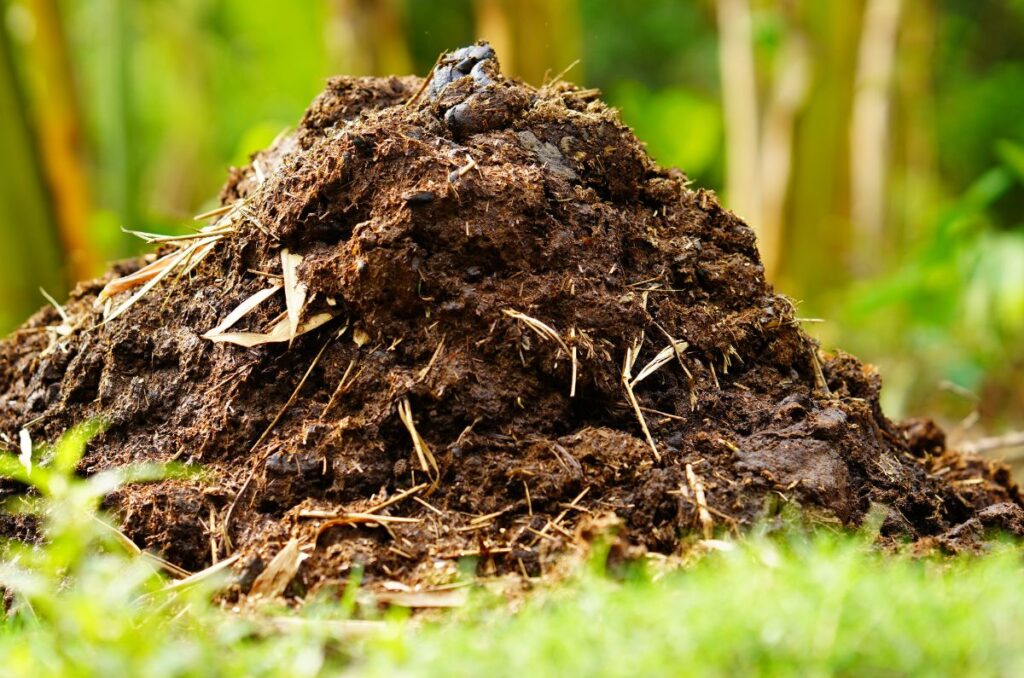
By that same definition, manure would also be considered an organic fertilizer. It has a little bit more nutrition in it, but it’s used for the same reasons in the garden.
Learn more: Is Compost or Manure Better for Your Garden?
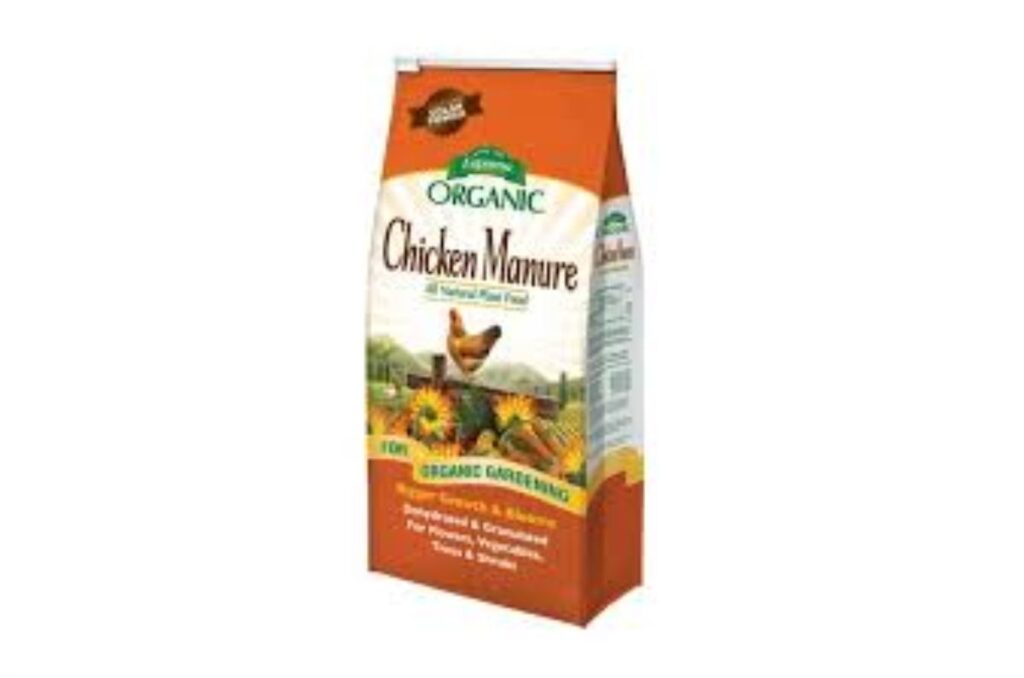
This would also include chicken manure and even worm castings, so go ahead and use them as fertilizers.
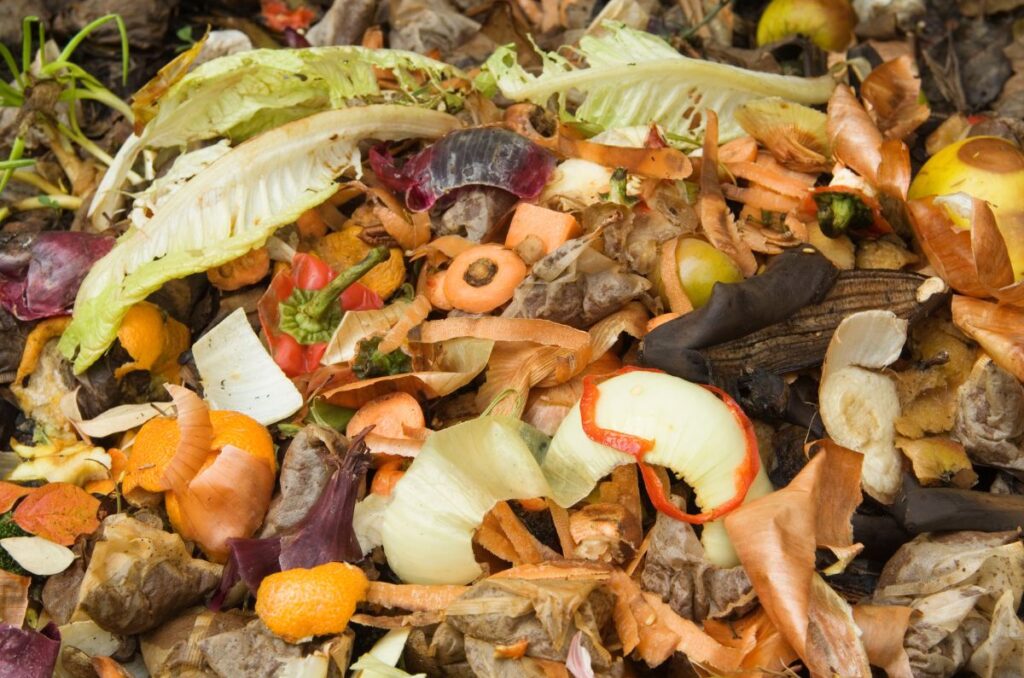
Are Food Scraps an Organic Fertilizer?
Unlike compost, food scraps are not broken down yet.
This means that their nutrients are not bioavailable to your plants until they fully decompose.
Therefore, food scraps are not an organic fertilizer. But if you compost or bury your food scraps, then they can become an organic fertilizer.
Best Organic Fertilizers for Vegetables
Now we’re getting into my list of the best organic fertilizers for vegetables.
I tried to be unbiased, but most of these are either ones that I like or that I use in my garden all the time.
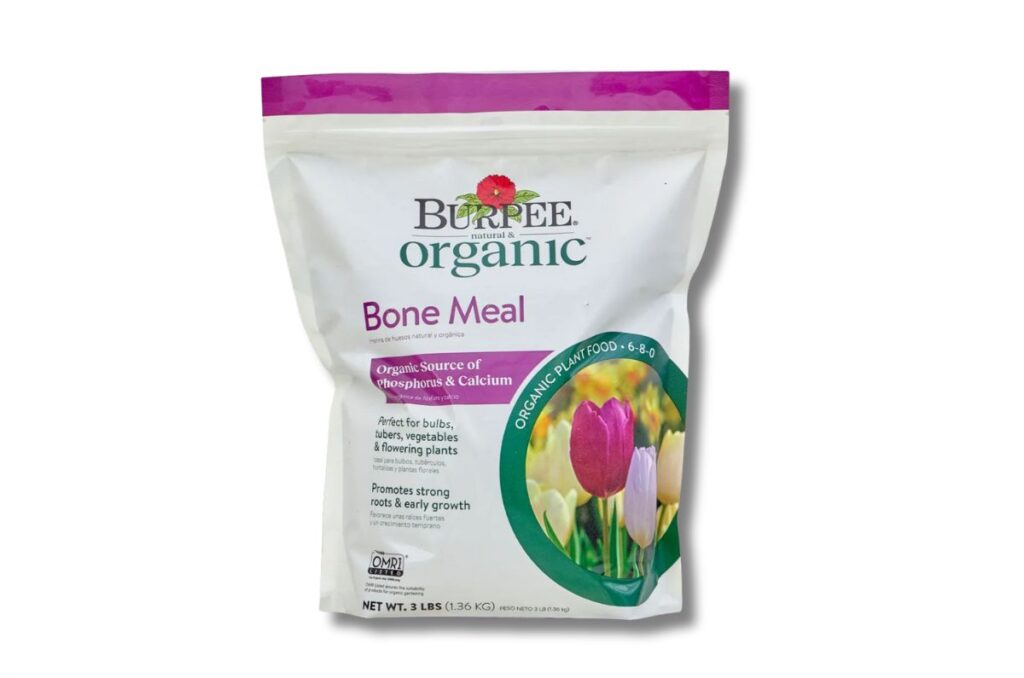
Bone Meal
This is hands down my favourite organic fertilizer. Like I said, there must be something special about dumping a bunch of crushed animal bones all over your plants.
Bone meal is made completely from animal carcasses, mainly cow bones. But other animals, like fish, sheep, goats, and horses, are often used as well.
After the animals go to the slaughterhouse, their bones are collected and used to make bone meal.
If you think that’s disgusting or “inhumane,” then just remember that the bones would otherwise be going into the garbage.
The process of making bone meal actually recycles and reuses a common waste product, bones.
All of the remaining meat, fat, cartilage, and gelatinous tissue is removed by boiling or steaming. Then they’re dried and ground into a fine powder.
This bone meal has an NPK ratio of 6-8-0, but it can vary slightly between brands.
The main nutrient is phosphorus, of course, but calcium, magnesium, and other trace minerals are present.
I use it for all my plants when transplanting; it helps with good root development.
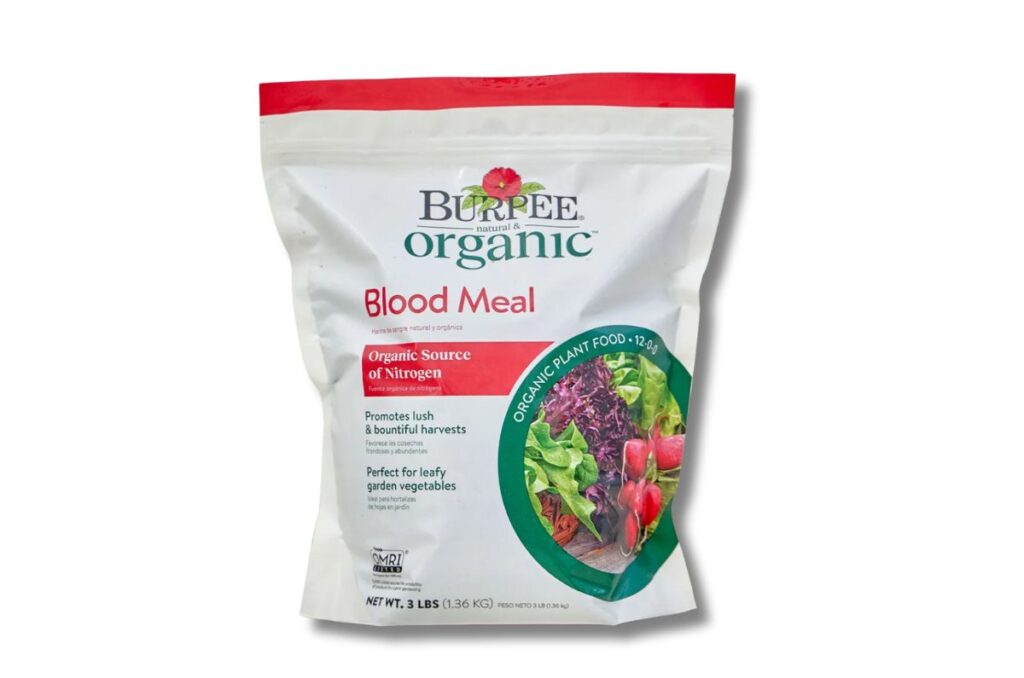
Blood Meal
I told you that I like animal-based organic fertilizers.
Similarly to bone meal, blood meal is made from animal waste, specifically the blood. Animal blood is not typically sold at the grocery stores, so this is a way to recycle it.
Before the animals (mainly cows and pigs) are slaughtered, their blood is drained and collected.
It’s then dried and turned into a powder known as blood meal. Sometimes they boil the blood first just to evaporate some water and kill pathogens, but not always.
Again, if this sounds gross or “inhumane” to you, then just know that this is one of the best ways to recycle this waste product.
Blood meal is almost all nitrogen, with an NPK ratio of roughly 12-0-0. It’s basically all nitrogen.
I would use blood meal for vegetables that need a lot of nitrogen, like spinach, broccoli, or cabbage.
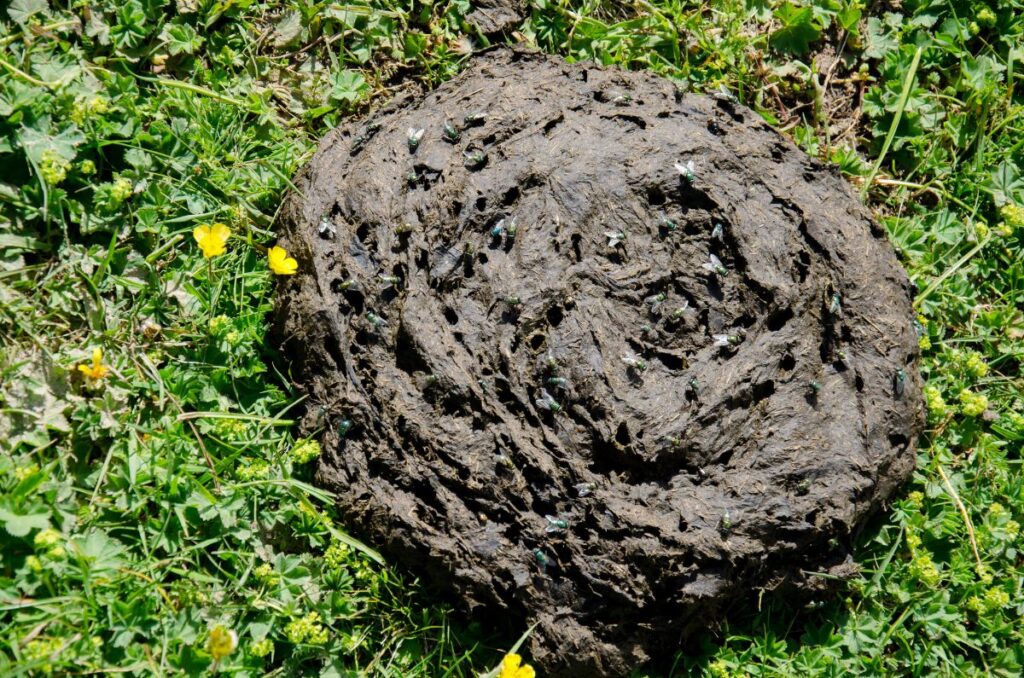
Manure
Manure is definitely my go-to soil amendment. I use it every single spring in all my garden beds, containers, and grow bags.
It’s made from animal poop, usually cow, sheep, or horse. I just get whichever one is on sale; one year it’s the sheep manure, one year the cow manure.
Again, it’s another way to recycle a very common waste product. If you think it’s “inhumane,” then I guess you’d rather have farmers throw their manure in the landfill.
Manure has a very low NPK ratio, usually around 0.5-0.5-0.5. It’s very weak and generally not meant to give your plants a ton of nutrients.
It’s mainly used for adding organic matter, improving soil structure, introducing beneficial microbes, and improving water retention.
You can also substitute it for compost, if you happen to make your own. Don’t buy compost from the store, it’s never as good as the stuff you can make at home.
If you have to buy it, then buy manure. But if you’re making homemade compost, then it’s better than store-bought manure.
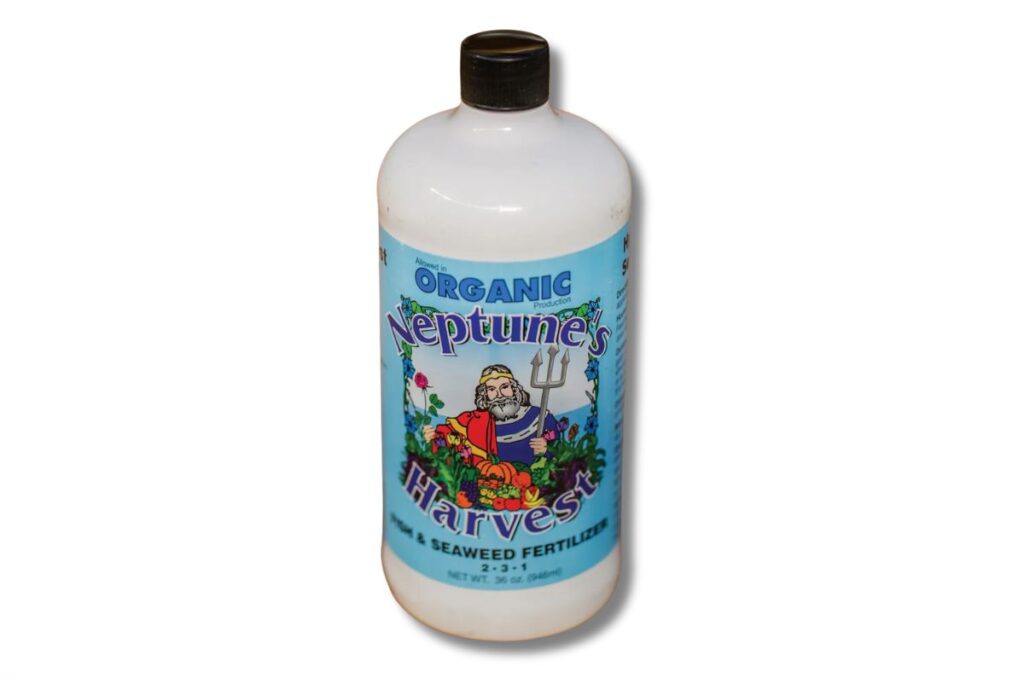
Fish Emulsion
This is another great fertilizer that’s derived from a common waste product.
If you’ve ever seen commercial fishing projects, then you know that they have a lot of waste.
A lot of dead fish, small fish, unsellable fish, fish heads, scales, skin, bones, and other fish waste is gathered during commercial fishing.
Instead of throwing all of this waste into the landfill, they can turn it into organic fertilizer.
They take all of this waste and grind it into a fish slurry. Sounds delicious, right?
The slurry is then heated to above 80°C (176°F) to extract the oils and kill certain bacteria.
Then the slurry solids are strained out and removed. The remaining liquid is that liquid fish gold that’s perfect for use in your garden.
This fish emulsion fertilizer also has seaweed added for more micronutrients.
Because the NPK ratio is fairly low (2-3-1), it’s best used for young seedlings. Seedlings don’t need too much nutrition, so it’s perfect.
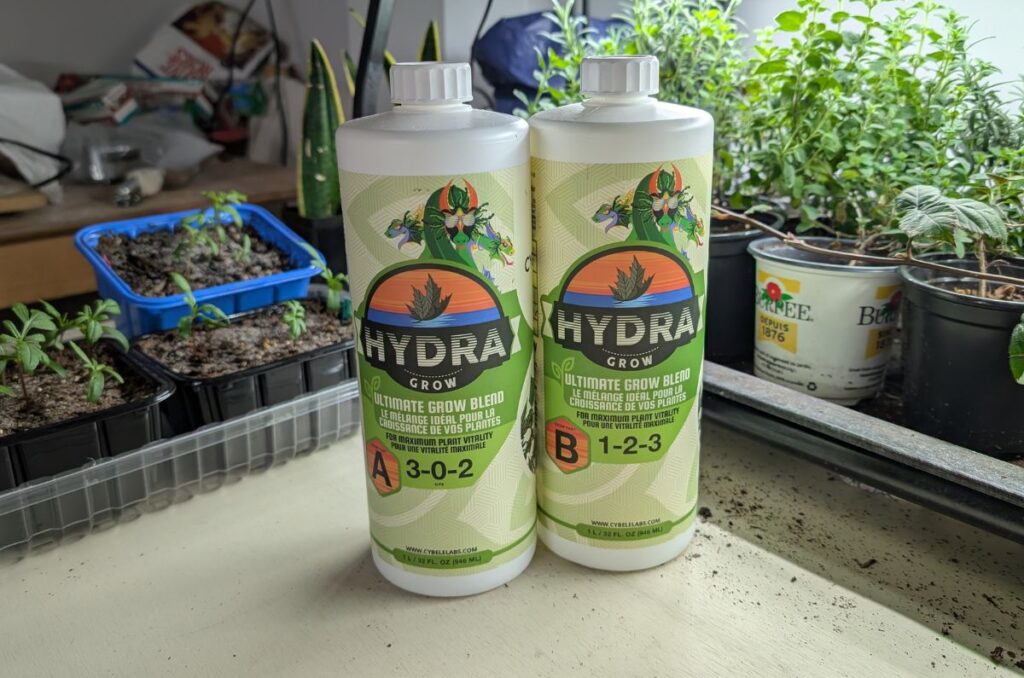
Other Fertilizers
Some fertilizers don’t really fall into any categories, they just have an NPK ratio.
For example, unless it’s a specific fertilizer like “alfalfa meal,” then it won’t have a name. It’ll just have an NPK ratio like 5-3-2.
So you’ll have to read and understand the NPK ratios to determine which plants it works best with.
For example, peppers benefit from more potassium to promote fruit and flower production. So an NPK ratio of something like 3-3-8 would be great.
It doesn’t necessarily have to say “pepper fertilizer” on the package.
My favourite one is the HydraGrow A + B fertilizer from HydraGarden. It comes in 2 different bottles and they have to be mixed and diluted in water before use.
I literally use this fertilizer all the time, even in my YouTube videos. I mainly use it for indoor plants and container plants, but it’s great for all vegetables.
I’m not affiliated with HydraGarden, I just really like their products, so make sure to check them out.
Organic Fertilizer Without Animal Products
For some reason, some people don’t like using animal products in their garden. Sure, I don’t understand why, but I can still respect it.
It’s not like there are thousands of organisms pooping and dying in your soil everyday, leaving behind their waste products.
And it’s not like animal-based organic fertilizers are made from recycled materials that would otherwise be thrown in the landfill.
Oh wait.
But in all sincerity, there are plenty of organic fertilizers that don’t have any animal products.
Compost, for example, can be made without animal products. If you don’t eat eggs or anything like that, then it won’t end up in your compost.
Additionally, there are many liquid and granular fertilizers made exclusively from plant products.
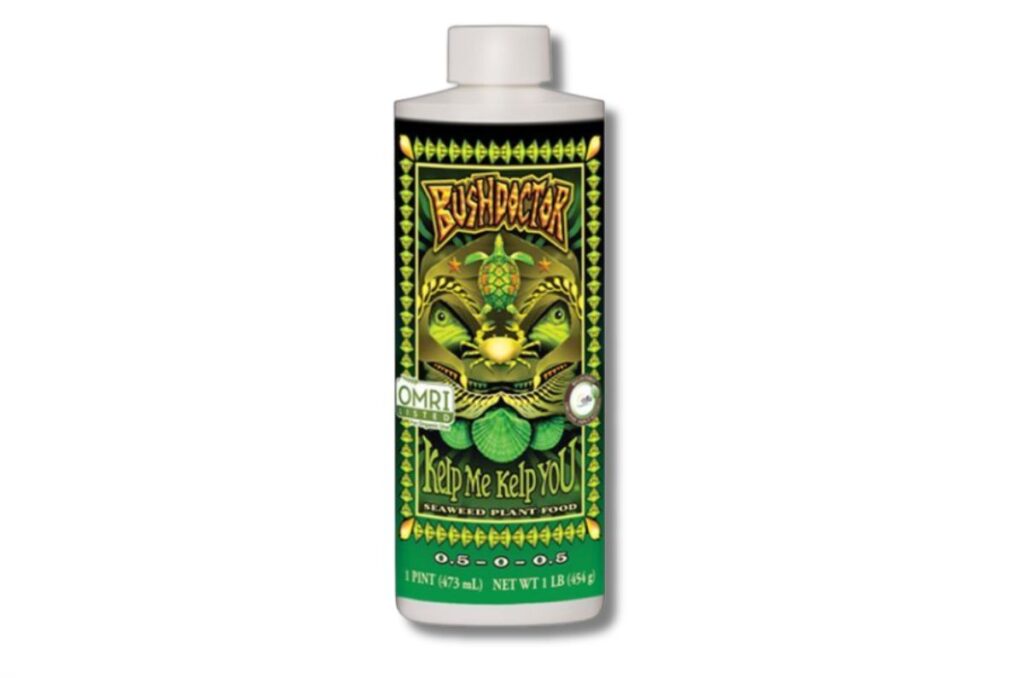
Kelp fertilizer is one of the most popular. It’s made entirely from kelp, which is a type of seaweed.
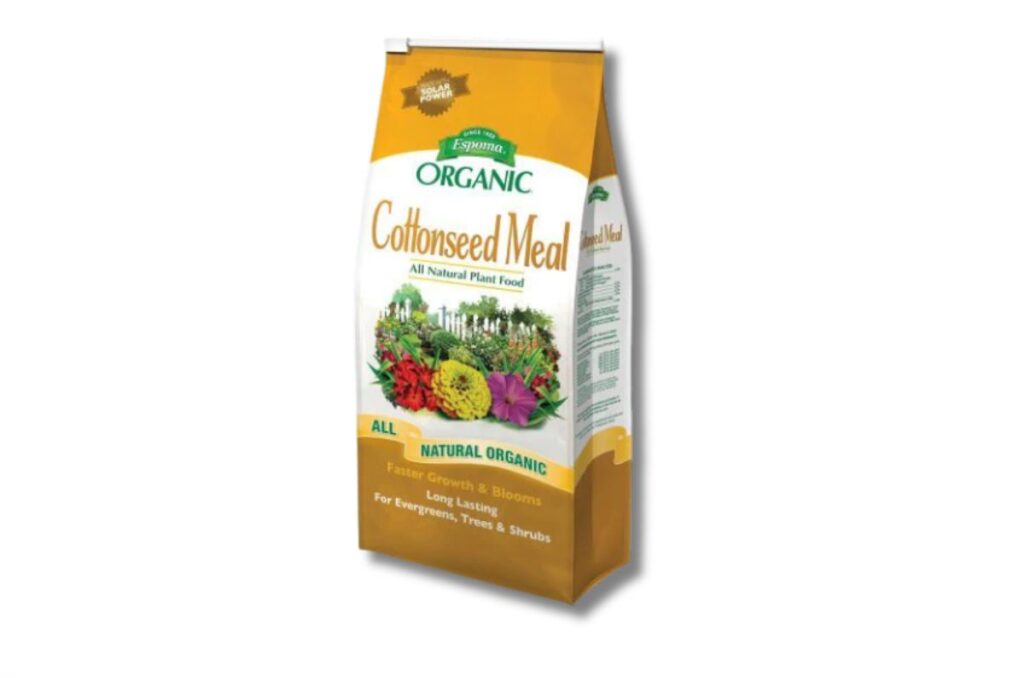
Another very popular one is cottonseed meal, which is made from the byproduct of cottonseed oil production.
There are so many other ones, so just make sure to do your research.
When to Apply Organic Fertilizer
It really doesn’t matter when you apply organic fertilizer to your garden.
You should apply it at any time your plants need some fertilizer. If they need it at the beginning of the season, then you should apply it.
For me, I like to do at least 2 applications of granular fertilizer during the growing season.
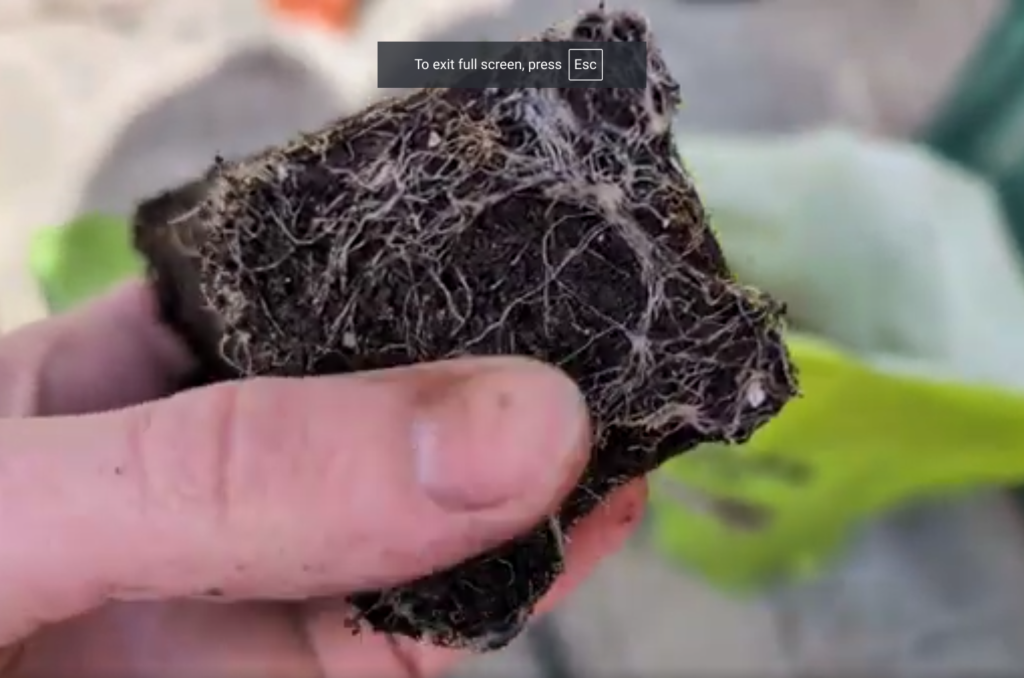
The first one is at transplanting time. I like to add a nice dose of bone meal into the planting hole for every seedling.
And then when the plants really start producing. This varies between different vegetable varieties.
For tomatoes, it would be at the time that you start getting a lot of ripe fruits.
For broccoli, it would be at the time that it starts producing a head.
So don’t think that there’s a specific time you should apply fertilizer. These are when I like to apply fertilizer, but it should be at any time your plants need it.
How Much Organic Fertilizer do I Use?
A lot of people end up putting less fertilizer than their plants actually need. And that’s because they don’t know how much fertilizer to use in their garden.
But the fertilizer packet tells you exactly how much you need to apply per square foot.
Of course, nobody follows that, not even me. But it’s still there for a recommendation.
However, I can say that you almost always need to add more than you think you need. For example, a tomato plant won’t do anything with a tiny pinch of bone meal.
You need to add a nice healthy dose for it to actually matter.
If you’re confused, then just follow the packet instructions.
Frequently Asked Questions
Organic fertilizers are gentle on your plants and will not burn them like synthetic fertilizers. You see, because they’re not pure nutrients like synthetic, they basically can’t even burn your plants.
Indoor plants generally benefit from weak organic fertilizers, like fish or kelp emulsion. They don’t grow too large, so a weak fertilizer is great. I also like to use liquid fertilizers indoors because it allows for more precise nutrient targeting.
10-10-10 fertilizer is not ideal for a vegetable garden unless you know for sure that your soil is equally deficient in each macronutrient. This problem almost never happens in the home vegetable garden, so a 10-10-10 fertilizer is almost never necessary.
The main disadvantage is that it takes longer to see results. Because organic fertilizers need time to break down before the nutrients become bioavailable, then it will also take time for your plants to absorb the nutrients.
Even More Gardening Ideas
Here are a few more posts to get the ball rolling in your garden!
- 10 Delicious Sweet Pepper Varieties You NEED to Grow
- 3 DIY Pea Trellis Ideas that Actually WORK
- Compost vs. Manure: Which One’s Better for Your Garden?
If you liked this article, make sure to share it with your friends and family members who are also looking to sharpen their gardening skills. Also, consider signing up for our email newsletter; don’t worry, we won’t send you spam, just fresh gardening ideas every week!
If you want to learn more about vegetable gardening, make sure to check out what I’m doing on Facebook, YouTube, and Pinterest.
Pin this post for later:
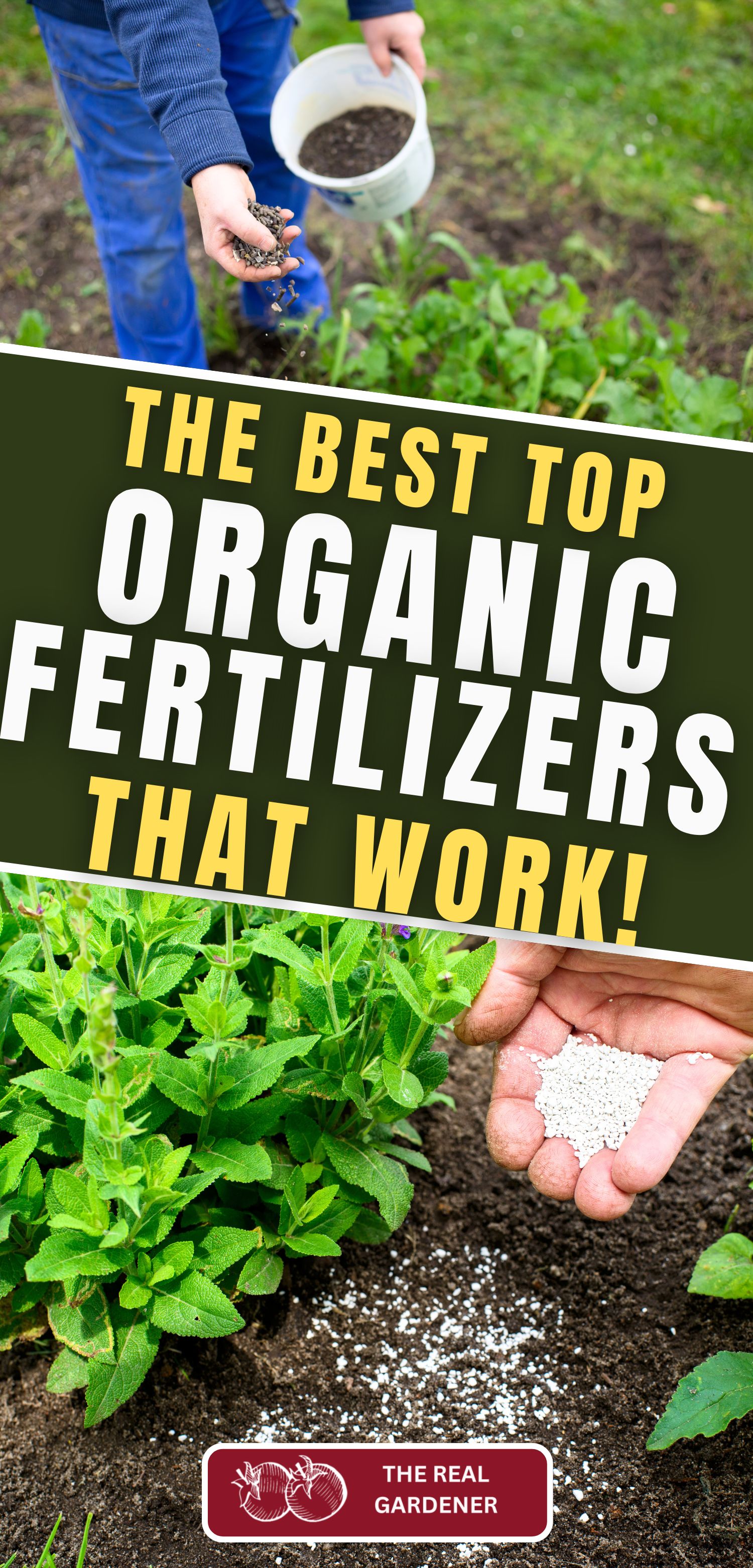
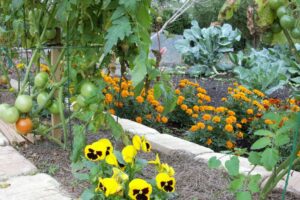
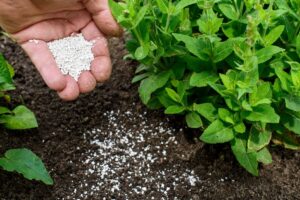
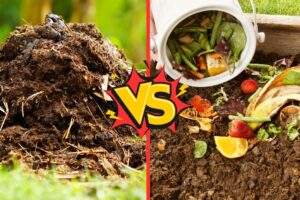
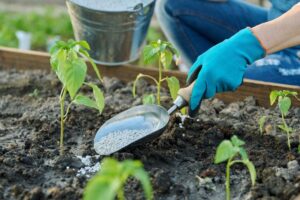
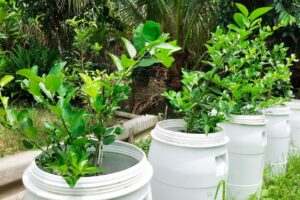
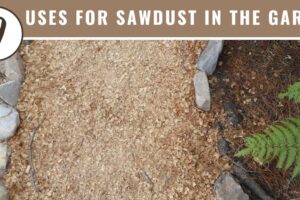

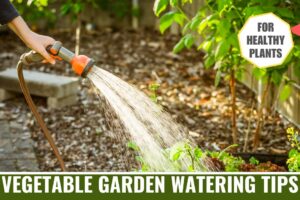
Leave a Reply